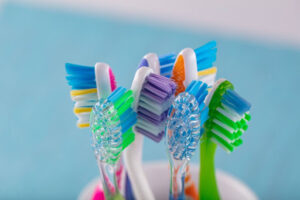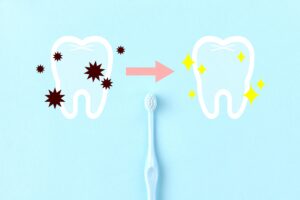 Teaching your kids to care for their teeth from a young age helps them enjoy strong, healthy smiles well into adulthood. Dr. Egger offers personalized guidance and compassionate care to make your family’s dental visits positive and educational. By choosing this practice, you can feel confident knowing your child receives dedicated attention and a gentle approach through every stage of their dental journey. The team’s wide range of dental services ensures all your family’s needs are covered in one convenient location.
Teaching your kids to care for their teeth from a young age helps them enjoy strong, healthy smiles well into adulthood. Dr. Egger offers personalized guidance and compassionate care to make your family’s dental visits positive and educational. By choosing this practice, you can feel confident knowing your child receives dedicated attention and a gentle approach through every stage of their dental journey. The team’s wide range of dental services ensures all your family’s needs are covered in one convenient location.
Make Brushing Fun And Effective
Start introducing brushing as soon as your child’s first tooth comes in. Use a child-friendly toothbrush with soft bristles and a tiny amount of fluoride toothpaste. Show your child how to brush all surfaces of their teeth in gentle circles and supervise until they can brush independently, typically around age seven or eight. Turning brushing into a shared family routine or adding a fun song can make it more enjoyable and help them look forward to this daily habit.
Begin Flossing Early
Flossing is essential for removing plaque and food particles between teeth where a toothbrush can’t reach. Begin flossing your child’s teeth once two teeth touch. You can assist them at first and gradually teach them how to do it on their own as they get older. Starting this habit early helps them view flossing as a natural and important part of daily care, not just an extra step.
Focus On A Tooth-Friendly Diet
Encouraging nutritious choices supports your child’s dental health. Reduce sugary snacks and drinks, which can lead to cavities and weaken tooth enamel. Offer snacks like fresh fruit, crunchy vegetables, yogurt, and cheese to strengthen their teeth and gums. Drinking water regularly also helps rinse away food debris and keeps their mouth fresh throughout the day.
Keep Up With Regular Dental Checkups
Bringing your child to the dentist every six months allows for early detection of potential issues and reinforces the importance of professional care. During these visits, Dr. Egger can provide tips on brushing and flossing techniques tailored to your child’s needs and help them feel comfortable in a dental setting. Regular appointments also give you a chance to ask questions and stay proactive about your child’s oral health.
Give Your Child A Bright Future With Dr. Egger In Mount Pleasant
Starting strong dental habits at home combined with routine visits to a trusted dentist helps your child enjoy a lifetime of confident smiles. If you’re ready to support your child’s dental health, contact Dr. Egger in Mount Pleasant, Michigan. Call 989-773-3560 today to schedule an appointment and take the first step toward keeping their smile healthy and bright.









